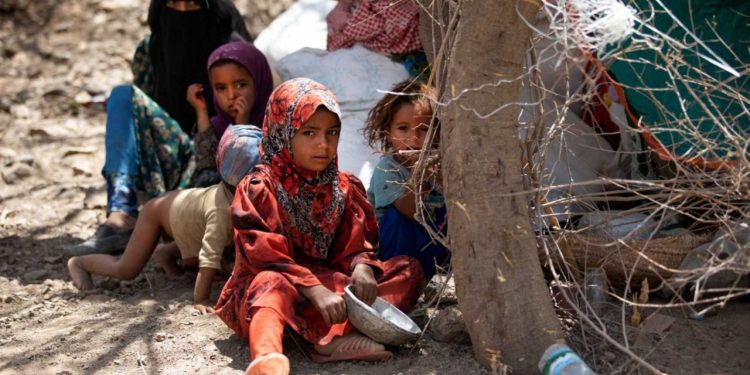More than 23,000 people have been displaced since the start of the year due to the ongoing war in Yemen, said Stéphane Dujarric, Spokesperson for the United Nations Secretary-General.
He expressed concern about the grave situation in the country, including the impact of the ongoing conflict, which is causing civilian casualties on a daily basis.
He added that more than 23,000 people have been displaced since the start of the year, most of them in Hudaydah, Marib, Shabwah and Taiz governorates.
Dujarric stressed that those people “join more than 4Â million men, women and children who have been displaced across Yemen since the latest escalation got underway in 2015”.
He also pointed out that “acute funding shortages are threatening the flow of humanitarian assistance for those displaced”, adding that “at the start of this year, two-thirds of major UN aid programmes had already been forced to reduce or close due to lack of cash.”
He warned that “further cuts are on the horizon if funding is not received”, while stressing that “food rations have already been cut by half for 8Â million people. Those people may soon stop receiving food assistance from the UN altogether.”
The UN Spokesperson called on “donors to pledge generously at a high-level pledging conference for Yemen, which is scheduled for 16Â March, co-hosted by ourselves and the Governments of Sweden and Switzerland.”
On Thursday, the UN has warned that the countdown to catastrophe begins in Yemen as funding for food assistance dwindles.
WFP Executive Director David Beasley warned that in case of the ongoing reduction of food funding, “We have no choice but to take food from the hungry to feed the starving.”
Over the past seven years, Yemen has been plagued by one of the world’s worst food crises, which claimed the lives of more than 233 thousand, and left 80% of the population (30 million) dependent on aid to survive.
Last month, The United Nations High Commissioner for Refugees (UNHCR) announced that “the total number of displaced people across Yemen has risen to 4.2 million” since the start of the war in March 2015, noting that “there are enormous humanitarian needs for these displaced people, while funding is very limited.”






























